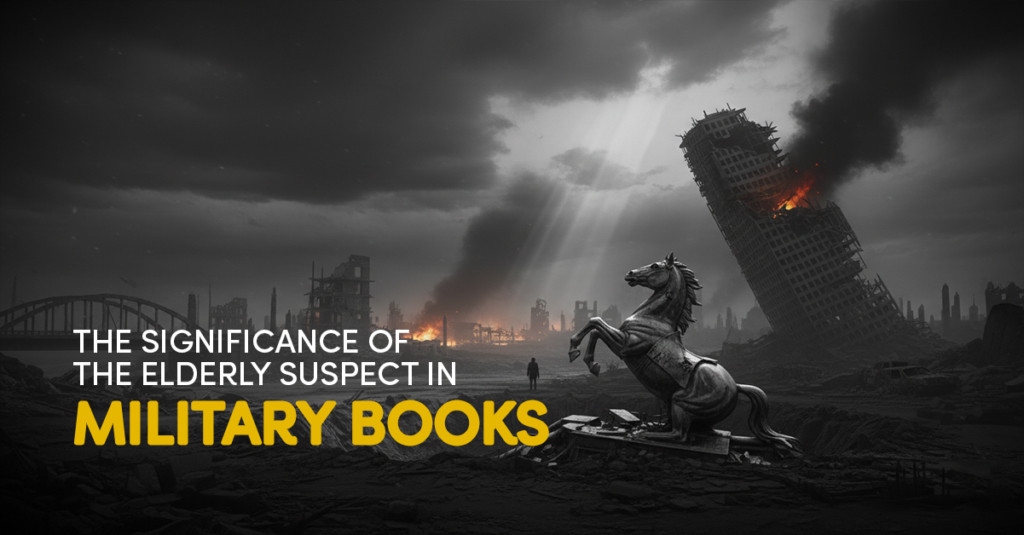Introduction
Ahmed Alshuwaikhat‘s novel, a standout in the realm of Military Books, presents the elderly suspect as a poignant symbol of innocence, guilt, and the moral ambiguities of war. Set during the Iraq War, the story delves into the psychological and emotional toll of conflict. The elderly suspect becomes a crucial figure, prompting readers to reflect on war’s broader implications and the blurred lines between victim and perpetrator.
The Elderly Suspect as a Symbol of War’s Toll
The elderly suspect has endured war’s devastation, representing civilians trapped in military conflicts. His age signifies wisdom, suffering, and survival, making him a powerful symbol of war’s innocent victims. Unlike soldiers, often portrayed as heroes or villains, he embodies human complexity in a war-torn society. His presence reminds readers that behind statistics lie real people with personal stories, emotions, and struggles.
Themes of Innocence and Guilt in Military Books
Through interactions with David Boccaccio, the protagonist and translator, the novel explores innocence and guilt. David, tasked with navigating war’s complexities, initially perceives the suspect with suspicion. However, as he learns more, his perspective shifts. The elderly man, once seen as a potential threat, emerges as a victim of circumstances beyond his control.
This transformation highlights war’s moral dilemmas. Guilt and innocence are not always clear-cut. Loyalties shift, and survival often takes precedence over morality. The elderly suspect embodies this struggle, reflecting those who suffer due to decisions made by others. His character forces David—and readers—to question preconceived notions of right and wrong in wartime.

The Role of Memory and Loss
The elderly suspect also represents memory and loss. His recollections offer glimpses into Iraq’s cultural and historical richness, contrasting the surrounding violence. These memories deepen the narrative, providing insight into the devastating effects of war on individuals and communities. His reflections underscore the loss of innocence, reinforcing the novel’s emotional depth within the genre of Military Books.
The Novel’s Place Among Military Books
In Military Books, “The American Translator” stands out by shifting focus from soldiers to civilians. Many war narratives emphasize combat experiences, but Alshuwaikhat highlights war’s overlooked consequences on innocent lives. The elderly suspect symbolizes war’s human cost, reminding readers that conflict extends beyond the battlefield.
Conclusion
The elderly suspect in “The American Translator” plays a pivotal role in exploring innocence, guilt, and the complexities of war. His character challenges perceptions of victimhood and culpability, emphasizing empathy and understanding in a divided world. Alshuwaikhat, through this character, invites readers to reflect on war’s human impact, making this novel a significant addition to Military Books. With profound insights into war’s emotional and psychological toll, “The American Translator” offers a thought-provoking perspective on conflict’s lasting consequences.
Get it from Amazon
If you enjoy Military Books that explore the human side of war, “The American Translator” is a must-read. This gripping novel delves into moral dilemmas, cultural conflicts, and personal transformation amid the Iraq War.
Get your copy now on Amazon and experience a story that stays with you long after the last page.










